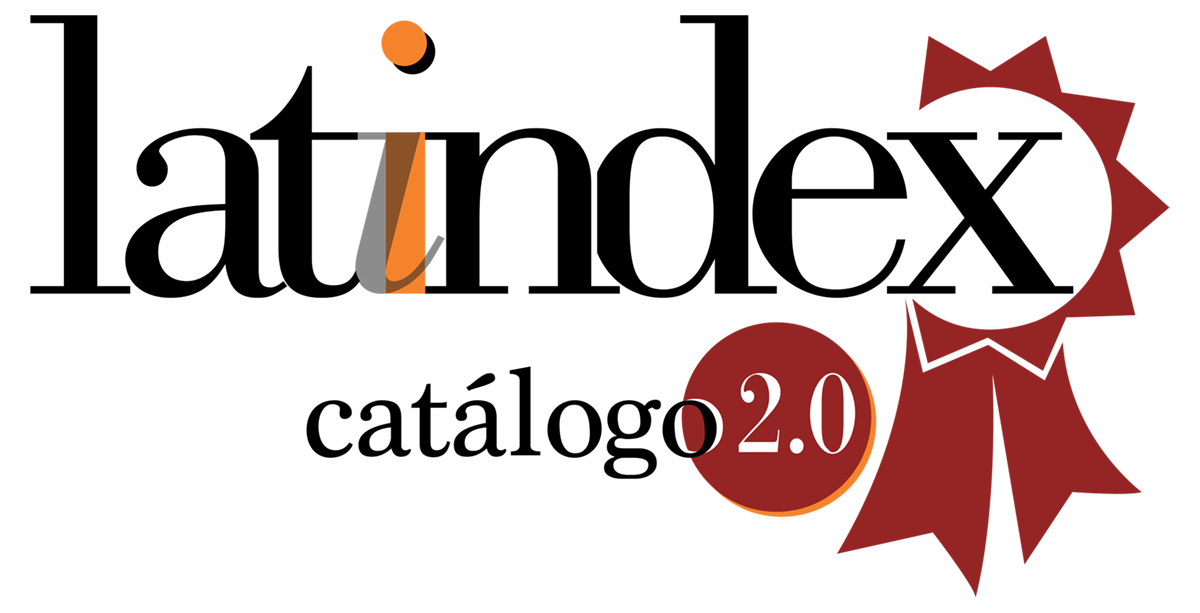Towards a holistic definition of Well-being: Integrating conceptualizations from sociology, psychology and economics
DOI:
https://doi.org/10.61144/0718-9397.2021.419Abstract
Scientific research has demonstrated for more than 50 years the benefits of happiness and wellbeing for individuals, organizations, societies and the planet. However, there are currently significant differences in the conceptualization and measurement of well-being. For example, while sociology focuses mainly on global aspects and social conditions that affect people's wellbeing, psychology focuses heavily on individual aspects, and economics on material and income aspects. The main objective of this article is to discuss the importance of integrating different existing perspectives on well-being. Advancing in a more holistic conception of well-being will
make it possible to expand and improve the quality of public policies that allow the use of this indicator to improve the quality of life of the population. Important theoretical and practical implications develop this article, especially focused on the field of education and the so-called "Proyecto Aula Segura (“Safe Classroom Project").
Keywords: well-being; happiness; education; public policies
References
Abel, A. B., & Bernanke, B. S. (2005). Macroeconomics 5th edition. In Pearson Education (Issue Fifth edition).
Adler, A., Unanue, W., Osin, E., Ricard, M., Alkire, S., & Seligman, M. (2017). Psychological Wellbeing. In K. Urra (Ed.), Happiness: Transforming the Development Landscape (pp. 60–79).
Álvarez, E. A. M. (2017). Una mirada sociológica en el estudio de la felicidad: en respuesta a Ruut Veenhoven.
Becchetti, L., & Pelloni, A. (2013). What are we learning from the life satisfaction literature? International Review of Economics, 60(2). https://doi.org/10.1007/s12232-013-0177-1
Bentham, J. (2008). Los principios de la moral y la legislación. Editorial Claridad.
Blanchflower, D. G., Oswald, A. J., & Stewart-Brown, S. (2012). Is Psychological Well-Being Linked to the Consumption of Fruit and Vegetables? Social Indicators Research, 114(3), 785–801. https://doi.org/10.1007/s11205-012-0173-y
Bradburn, N. M. (1969). The Structure of Psychological Well-Being. In American Sociological Review (Aldine, Vol. 35, Issue 5). https://doi.org/10.2307/2093340
Bravo, D., Oriol, X., Gómez, M., Cortez, D., & Unanue, W. (2020). The Effects of the 2016 Copa América Centenario Victory on Social Trust, Self-Transcendent Aspirations and Evaluated Subjective Well-Being: The Role of Identity With the National Team and Collective Pride in Major Sport Events. Frontiers in Psychology, 11. https://doi.org/10.3389/fpsyg.2020.591498
Cantril, H. (1965). The Pattern of Human Concerns. In The British Journal of Sociology (Vol. 18). New Brunswick, NJ Rutgers University Press. https://doi.org/10.2307/588624
Castellanos Cereceda, R. (2012). El bienestar subjetivo como enfoque e instrumento de la política pública: Una revisión analítica de la literatura. Revista Estado, Gobierno y Gestión Pública, 0(20). https://doi.org/10.5354/0717-6759.2012.25862
Chen, B., Vansteenkiste, M., Beyers, W., Boone, L., Deci, E. L., der Kaap-Deeder, J. Van, Duriez, B., Lens, W., Matos, L., Mouratidis, A., Ryan, R. M., Sheldon, K. M., Soenens, B., Petegem, S. Van, & Verstuyf, J. (2015). Basic psychological need satisfaction, need frustration, and need strength across four cultures. Motivation and Emotion, 39(2), 216–236. https://doi.org/10.1007/s11031-014-9450-1
Cohen, S., Doyle, W. J., Turner, R. B., Alper, C. M., & Skoner, D. P. (2003). Emotional style and susceptibility to the common cold. Psychosomatic Medicine, 65(4). https://doi.org/10.1097/01.PSY.0000077508.57784.DA
Daly, H., & Cobb, J. (1989). Para el bien común: reorientando la economía hacia la comunidad, el ambiente y un futuro sostenible. In Fondo de Cultura Económica.
Deci, E. L., & Ryan, R. M. (2000). The “what” and “why” of goal pursuits: Human needs and the self-determination of behavior. Psychological Inquiry, 11(4), 227–268. https://doi.org/10.1207/S15327965PLI1104_01
Delle Fave, A., Brdar, I., Freire, T., Vella-Brodrick, D., & Wissing, M. P. (2011). The Eudaimonic and Hedonic Components of Happiness: Qualitative and Quantitative Findings. Social Indicators Research, 100(2). https://doi.org/10.1007/s11205-010-9632-5
Diener, E. (1984). Subjective well-being. Psychological Bulletin, 95(3), 542–575. https://doi.org/10.1037/0033-2909.95.3.542
Diener, E., Emmons, R. A., Larsem, R. J., & Griffin, S. (1985). The Satisfaction With Life Scale. Journal of Personality Assessment, 49(1), 71–75. https://doi.org/10.1207/s15327752jpa4901_13
Diener, E., Heintzelman, S. J., Kushlev, K., Tay, L., Wirtz, D., Lutes, L. D., & Oishi, S. (2016). Findings all psychologists should know from the new science on subjective well-being. Canadian Psychology/Psychologie Canadienne, 58(2), 87. https://doi.org/10.1037/cap0000063
Diener, E., & Tay, L. (2012). A scientific review of the remarkable benefits of happiness for successful and healthy living. Report of the Well-Being Working Group, Royal Government of Bhutan: Report to the United Nations General Assembly, Well-Being and Happiness: A New Development Paradigm. New York: UN.
Diener, E., Wirtz, D., Tov, W., Kim-Prieto, C., won Choi, D., Oishi, S., & Biswas-Diener, R. (2010). New well-being measures: Short scales to assess flourishing and positive and negative feelings. Social Indicators Research, 97(2). https://doi.org/10.1007/s11205-009-9493-y
Easterlin, R. A. (2013). Happiness, growth, and public policy. Economic Inquiry, 51(1). https://doi.org/10.1111/j.1465-7295.2012.00505.x
Ferraro, F., Pfeffer, J., & Sutton, R. I. (2005). Economics language and assumptions: How theories can become self-fulfilling. Academy of Management Review, 30(1). https://doi.org/10.5465/AMR.2005.15281412
Helliwell, J. F., Layard, R., & Sachs, J. (2013). World Happiness Report 2013. New York: Earth Institute, Columbia University. http://eprints.lse.ac.uk/57573/
Kahneman, D., Diener, E., & Schwarz, N. (1999). Well-being: The foundations of hedonic psychology. Health San Francisco.
Kroll, C. (2011). Towards a Sociology of Happiness : Examining Social Capital and Subjective Well-being Across Subgroups of Society. In Political Science (Issue November).
Martela, F., Gómez, M., Unanue, W., Araya, S., Bravo, D., & Espejo, A. (2021). What makes work meaningful? Longitudinal evidence for the importance of autonomy and beneficence for meaningful work. Journal of Vocational Behavior, 131. https://doi.org/10.1016/j.jvb.2021.103631
ONU. (2011). Happiness Resolution on happiness and well-being. https://news.un.org/en/story/2011/07/382052
Repetto, R., Magrath, W., Wells, M., Beer, C., & Rossini, F. (1989). Wasting assets: natural resources in the national income accounts. Wasting Assets: Natural Resources in the National Income Accounts.
Reyes, V., Unanue, W., Gómez, M., Bravo, D., Unanue, J., Araya-Veliz, C., & Cortez, D. (2021). Dispositional Gratitude as an Underlying Psychological Process Between Materialism and the Satisfaction and Frustration of Basic Psychological Needs: A Longitudinal Mediational Analysis. Journal of Happiness Studies, 1–26. https://doi.org/10.1007/s10902-021-00414-0
Ryan, R. M., & Deci, E. L. (2001). On happiness and human potentials: A review of research on hedonic and eudaimonic well-being. In Annual Review of Psychology (Vol. 52, pp. 141–166). https://doi.org/10.1146/annurev.psych.52.1.141
Ryan, R. M., & Deci, E. L. (2017). Self-Determination Theory: Basic Psychological Needs in Motivation, Development, and Wellness. In Self-Determination Theory: Basic Psychological Needs in Motivation, Development, and Wellness. Guilford Publications. https://doi.org/10.1521/978.14625/28806
Ryff, C. D., & Keyes, C. L. M. (1995). The Structure of Psychological Well-Being Revisited. Journal of Personality and Social Psychology, 69(4), 719. https://doi.org/10.1037/0022-3514.69.4.719
SNDP. (2013). Summary Document & Proposed Model: Towards a New Development Paradigm. Retrieved from The Steering Committee for the New Development Paradigm, Royal Government of Bhutan. http://www.newdevelopmentparadigm.bt/wp-content/uploads/2013/06/Towards-a-New-Development-Paradigm.pdf
Stiglitz, J. E., & Sen, A. (2009). The Measurement of Economic Performance and Social Progress Revisited Reflections and Overview. Documents de Travail de LOFCE, 33, 79. https://hal-sciencespo.archives-ouvertes.fr/hal-01069384%0Ahttp://www.ofce.sciences-po.fr/pdf/dtravail/WP2009-33.pdf
Unanue, J., Oriol, X., Oyanedel, J. C., Rubio, A., & Unanue, W. (2021). Gratitude at work prospectively predicts lower workplace materialism: A three-wave longitudinal study in Chile. International Journal of Environmental Research and Public Health, 18(7), 3787. https://doi.org/10.3390/ijerph18073787
Unanue, W. (2017). Subjective Well-being Measures to Inform Public Policies. In K. Urra (Ed.), Happiness: Transforming the Development Landscape (pp. 118–155).
Unanue, W., Barros, E., & Gómez, M. (2021). The longitudinal link between organizational citizenship behaviors and three different models of happiness. International Journal of Environmental Research and Public Health, 18(12). https://doi.org/10.3390/ijerph18126387
Unanue, W., Dittmar, H., Vignoles, V. L., & Vansteenkiste, M. (2014).
Materialism and Well-being in the UK and Chile: Basic Need Satisfaction and Basic Need Frustration as Underlying Psychological Processes. European Journal of Personality, 28(6), 569–585. https://doi.org/10.1002/per.1954
Unanue, W., Maercovic, P., Weldt, C., & Olguín, E. (2013). Felicidad, bienestar y desempeño organizacional. In M. D, I.-Z. F., & U. Wenceslao (Eds.), La Felicidad: Evidencias y experiencias para cambiar nuestro mundo (pp. 295–320).
Unanue, W., Martínez, D., López, M., & Zamora, L. (2017). The role of subjective well-being in measuring the progress of nations and guiding public policy. Papeles Del Psicologo, 38(1), 26–33. https://doi.org/10.23923/pap.psicol2017.2818
Unanue, W., Oriol, X., Gómez, M., Cortez, D., & Bravo, D. (2020). Feel the Copa América final: Immediate and medium-term effects of major sport events and national football team identification on different components of subjective well-being. Current Psychology. https://doi.org/10.1007/s12144-019-00545-x
Unanue, W., Rempel, K., Gómez, M. E., & den Broeck, A. Van. (2017). When and why does materialism relate to employees’ attitudes and well-being: The mediational role of need satisfaction and need frustration. Frontiers in Psychology, 8(OCT), 1755. https://doi.org/10.3389/fpsyg.2017.01755
Unanue, W., Vignoles, V. L., Dittmar, H., & Vansteenkiste, M. (2016). Life goals predict environmental behavior: Cross-cultural and longitudinal evidence. Journal of Environmental Psychology, 46. https://doi.org/10.1016/j.jenvp.2016.02.001
Veenhoven, R. (2005). Lo que sabemos de la felicidad. La Calidad de Vida y Bienestar Subjetivo En México.
Veenhoven, R. (2008). Sociological Theories of Subjective Well-Being. The Science of Subjective Well-Being: A Tribute to Ed Diener, 44–61.
Waterman, A. S. (1993). Two conceptions of happiness: Contrasts of personal expressiveness (eudaimonia) and hedonic enjoyment. Journal of Personality and Social Psychology, 64(4), 678. https://doi.org/10.1037//0022-3514.64.4.678
Watson, D., Clark, L. A., & Tellegen, A. (1988). Development and validation of brief measures of positive and negative affect: The PANAS scales. Journal of Personality and Social Psychology, 54(6). https://doi.org/10.1037//0022-3514.54.6.1063
How to Cite
License
Copyright (c) 2022 Jesús Unanue Manríquez et al.

This work is licensed under a Creative Commons Attribution-NonCommercial-NoDerivatives 4.0 International License.
Los autores/as conservarán sus derechos de autor y garantizarán a la revista el derecho de primera publicación de su obra, el cual estará simultáneamente sujeto a la Licencia de reconocimiento de Creative Commons (CC BY-NC-ND) 4.0 que permite a terceros compartir la obra siempre que se indique su autor y se comparta el documento, en formato pdf y con la paginación del número original, a través del que este ha sido publicado por la revista. Siguiendo las definiciones establecidas por la licencia (ver: https://creativecommons.org/licenses/by-nc-nd/4.0/deed.es) los números de la revistas seguirán los siguientes términos:
-
Atribución — Usted debe dar crédito de manera adecuada, brindar un enlace a la licencia, e indicar si se han realizado cambios. Puede hacerlo en cualquier forma razonable, pero no de forma tal que sugiera que usted o su uso tienen el apoyo de la licenciante.
-
No Comercial — Usted no puede hacer uso del material con propósitos comerciales.
-
Sin Derivadas — Si remezcla, transforma o crea a partir del material, no podrá distribuir el material modificado.
- No hay restricciones adicionales — No puede aplicar términos legales ni medidas tecnológicas que restrinjan legalmente a otras a hacer cualquier uso permitido por la licencia.












